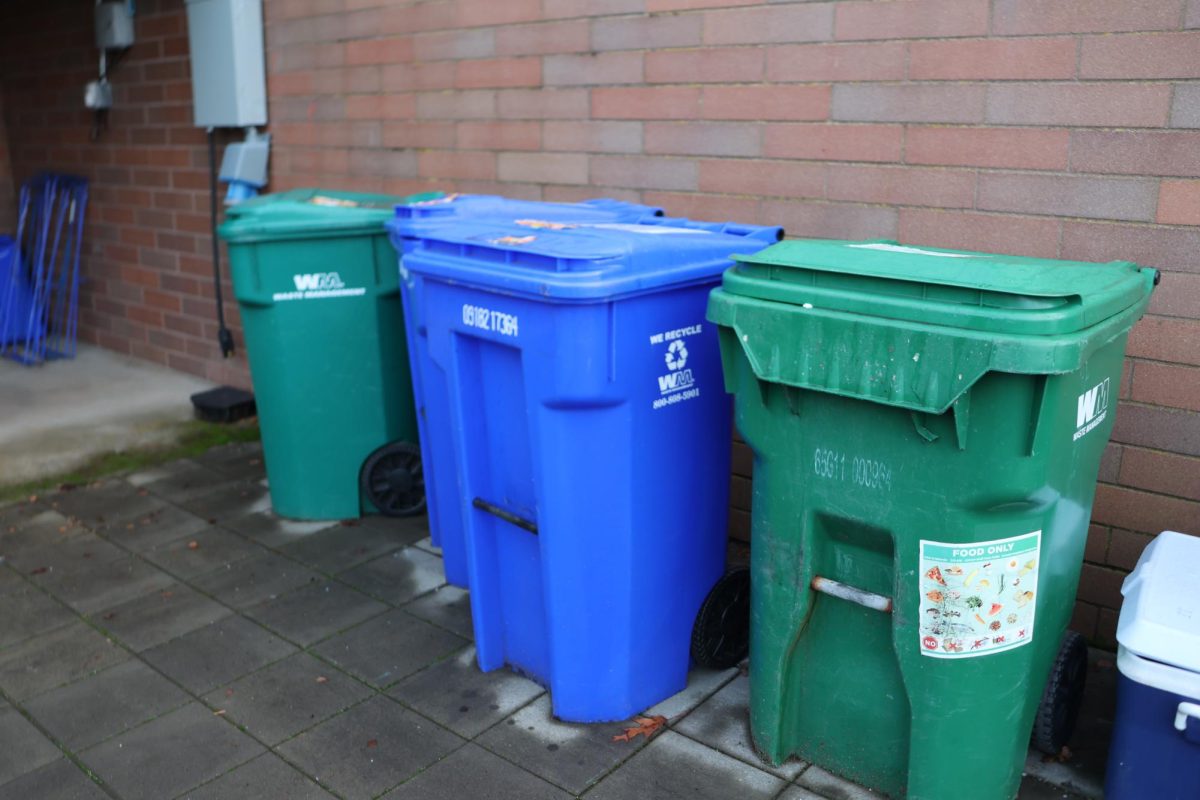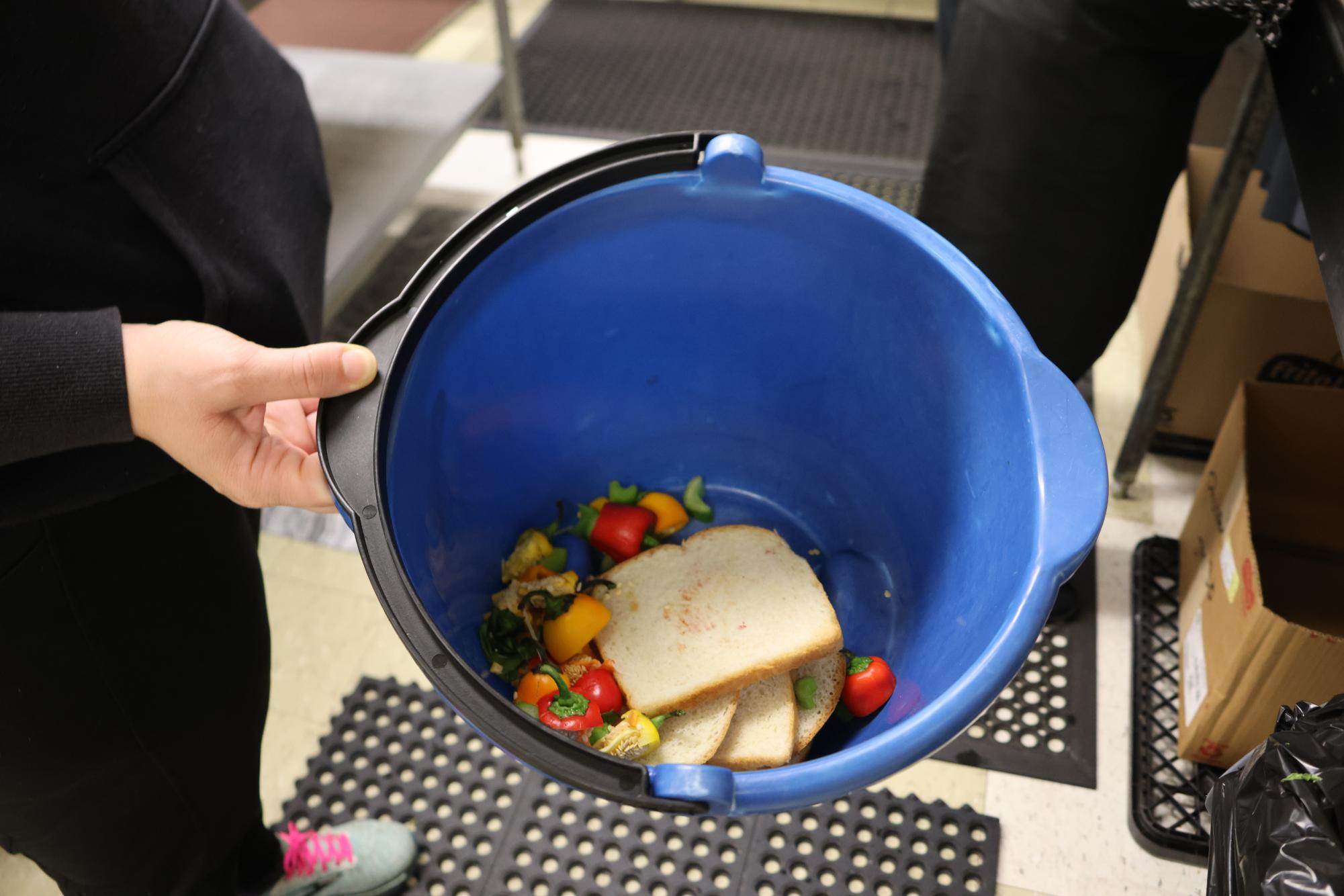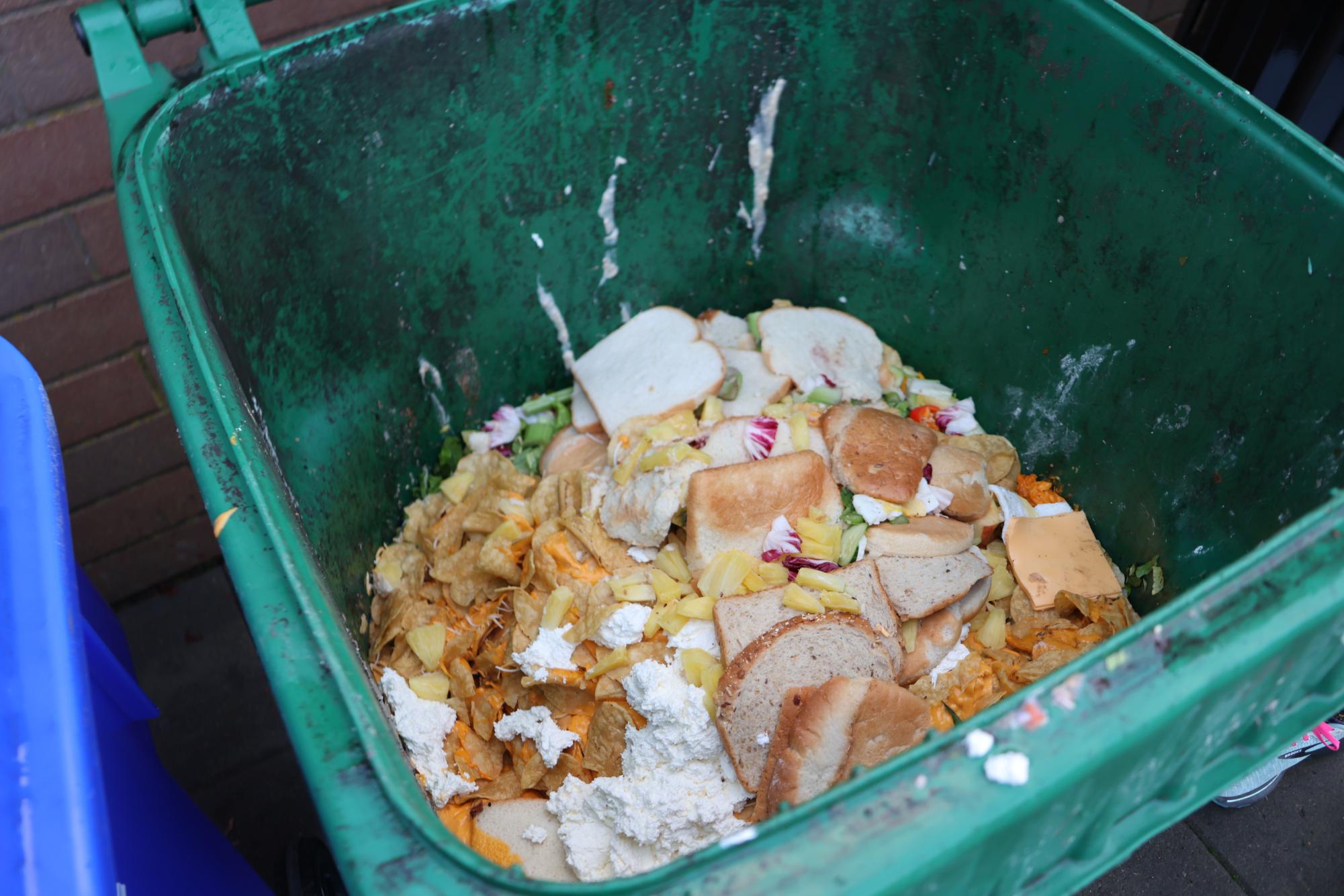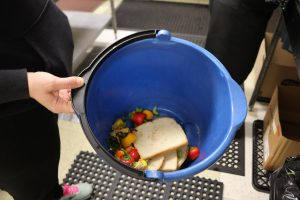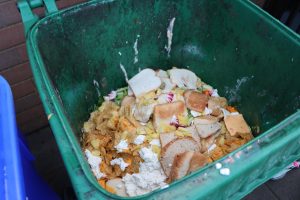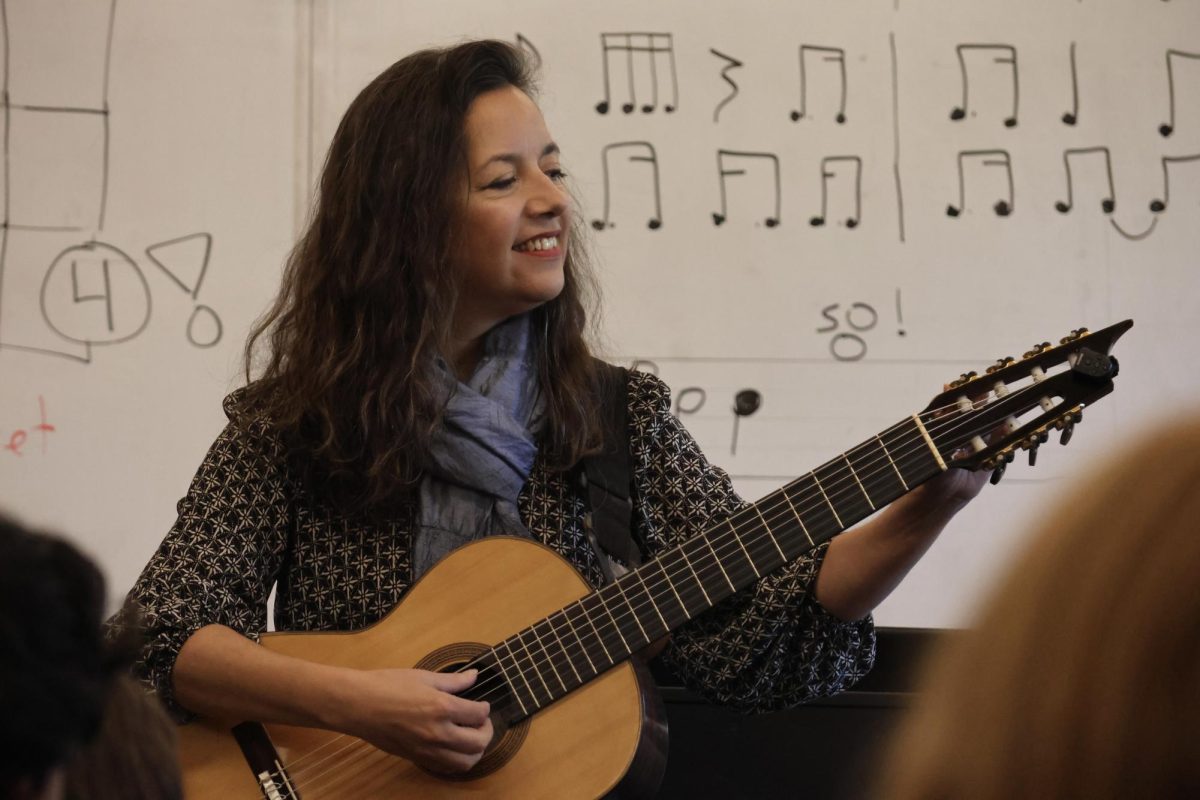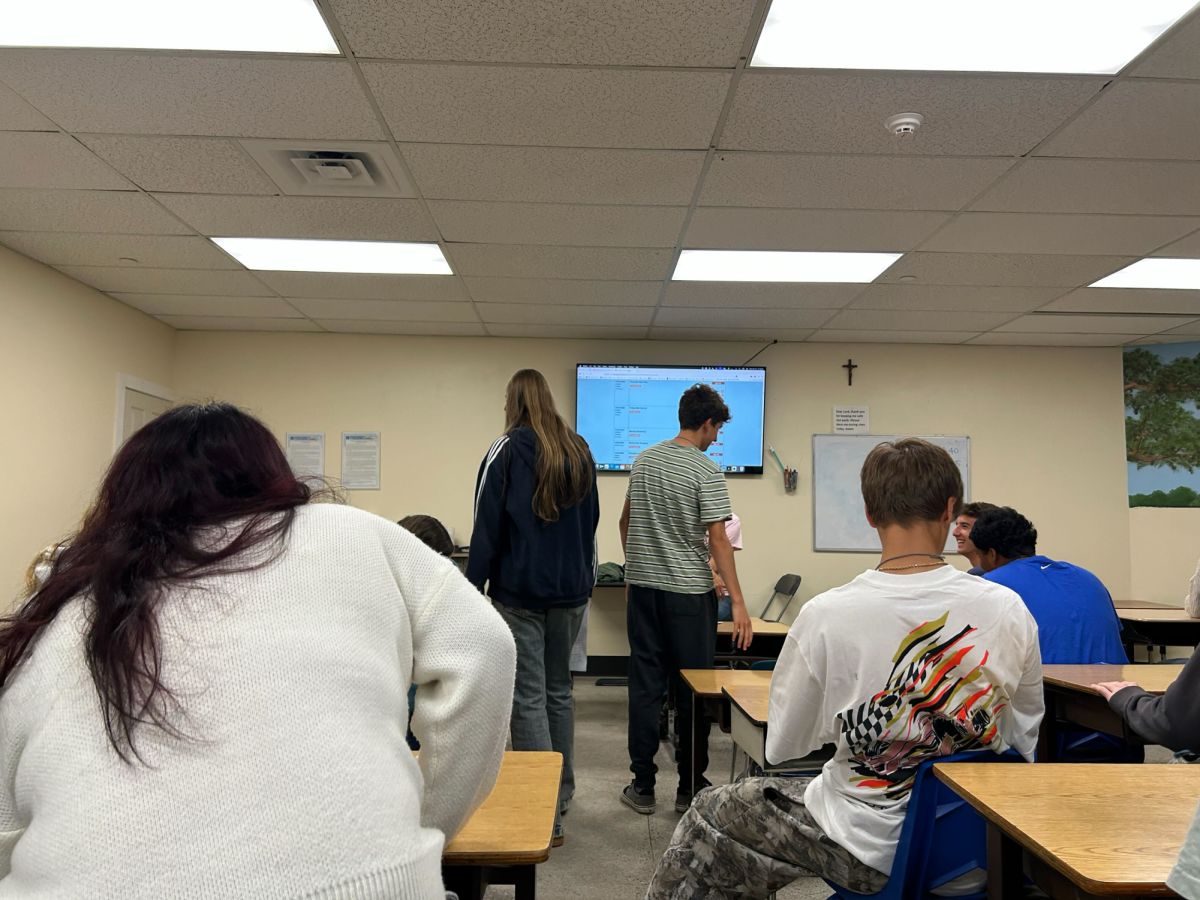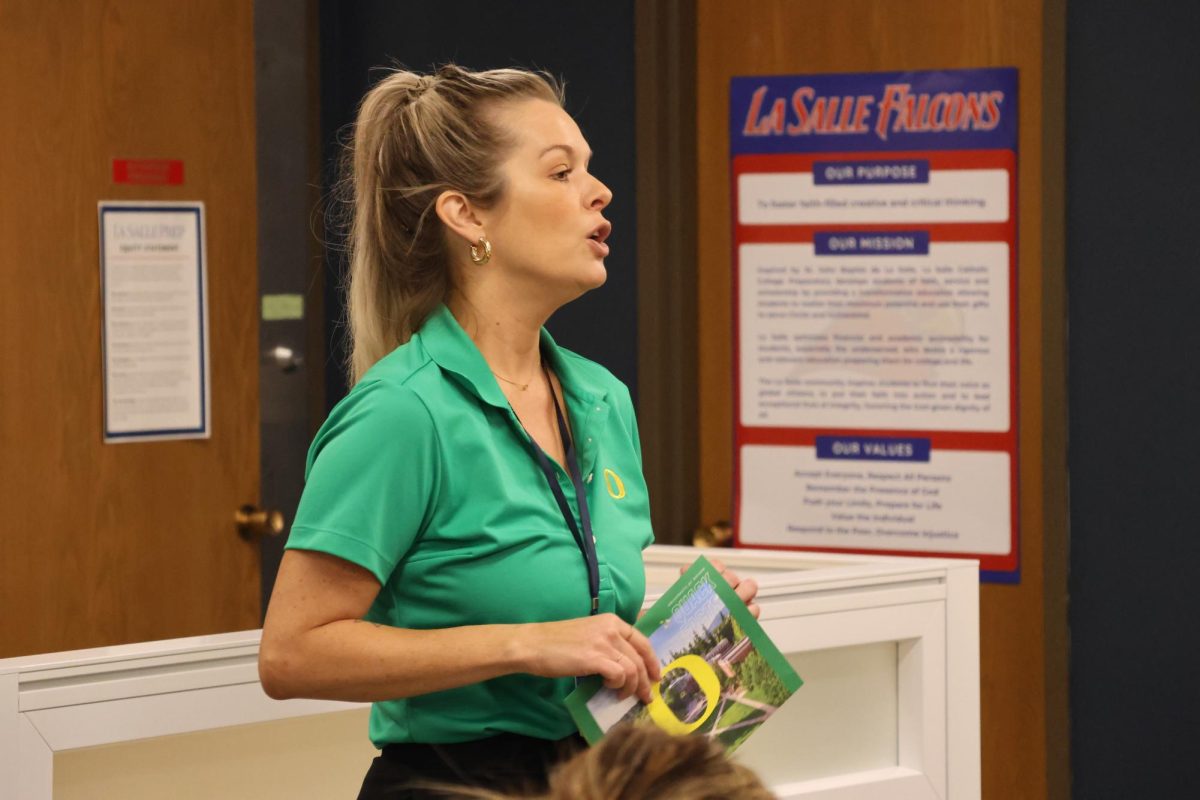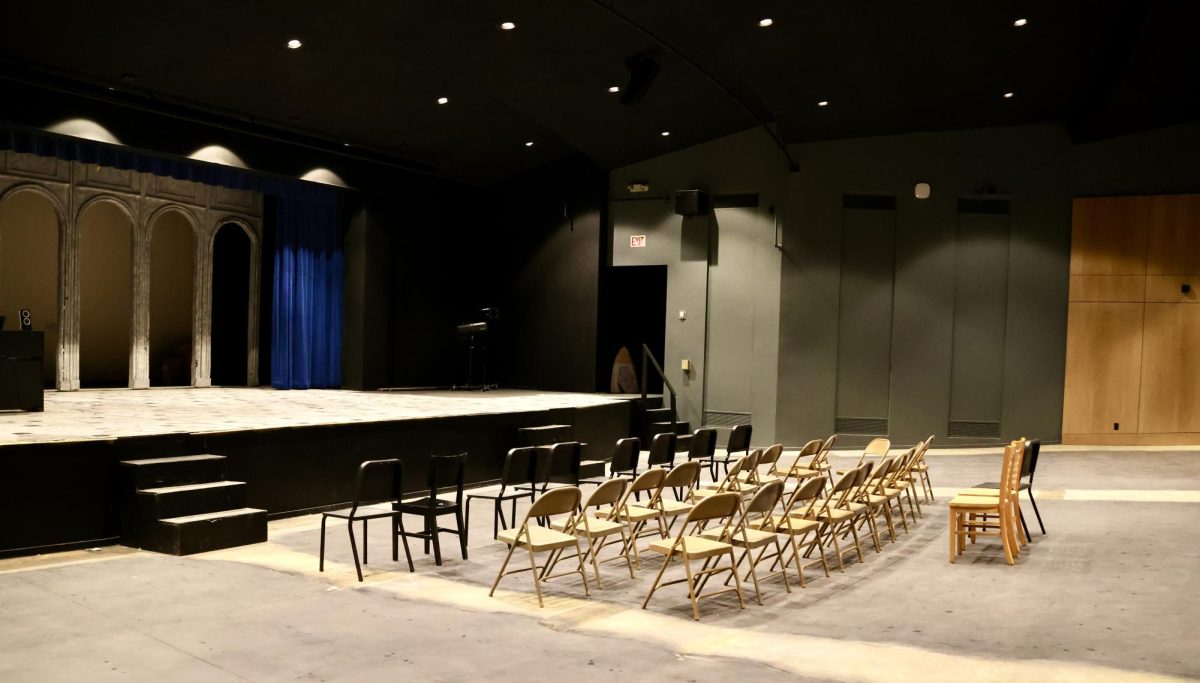Environmental justice has always been a passion for head chef Ms. Megan Gable, and as she transitions over to the position of Food Services Manager, she believes it is time to start the process to make the school green certified.
“I’ve always been an advocate for sustainability and looking into more ways to be a good steward of the planet at home, and then it just really bothered me when I felt like we were not doing enough here, when we can, when it’s easy,” Ms. Gable said.
While there are several different avenues to become green certified, Ms. Gable and current Food Services Manager Ms. Kim McCarthy want to focus on recycling and composting first.
According to Ms. Gable, becoming a green certified school is “just an extra certification that you get from the county that you are trying to be good stewards,” she said. She points out that this certification could also help La Salle stand out to potential families to show that the school is looking to become more green and is “trying to get better,” Ms. Gable said.
For Ms. Gable and Ms. McCarthy, the best way to make this happen is just to be better about recycling and composting throughout the whole school.
There are a limited number of people “that work at the recycling center on the line sorting things, so when they get a bunch of trash mixed in there it sort of negates the whole thing,” Ms. Gable said. This problem is present throughout the country, one example being that much of the plastic that is put in recycling bins ends up in landfills.
So far, the kitchen has already started composting scraps that are left over from food preparation and lunch, although there is not too much to compost because they also leave whatever meals are left from lunch for the staff in the teachers lounge.
At first, getting the composting started was a bit of a struggle, as they had trouble getting the county to pick up their compost, but that has since been resolved and the compost is picked up most Saturdays.
There was also a problem with garbage being thrown into the recycling bins behind the school, but Ms. Gable has communicated this to the maintenance staff, which has greatly helped this problem be reduced. She also made posters for the dumpsters to make it clear where recycling and garbage should go and what items should go in those spaces.
“That’s another thing that’s hard because we have kids coming from just different areas and the different areas have different rules,” Ms. McCarthy said. “So kids come in and they have the rules that they’ve been taught at their homes… or in their grade schools and they come here and we have a whole other set of rules of how to recycle.”
To help make the goal of becoming a green certified school a reality, Ms. Gable will be taking classes in the spring to become a Master Recycler. According to the official Association of Oregon Recyclers website, “Master Recyclers bridge the gap between awareness and action by motivating people to reduce waste at home and in the workplace.”
Although the effort to go green began just this year and is still in the planning stages, Ms. Gable and Ms. McCarthy hope to get more people on board, especially students.
“If the students are not going to be a part of the solution, it’s not going to work,” Ms. McCarthy said.
Ms. Gable and Ms. McCarthy take a lot of inspiration from the pre-pandemic Earth Club, who were great advocates to students to be better at recycling. Another goal that is inspired by the club is collecting the bottles around the school. They think it would be easy for students to start collecting the bottles for the BottleDrop and use the funds to either donate or fund more environmental projects.
“They really took on a lot of things to get kids to put things in the right place,” Ms. McCarthy said. “And we could do that again to get that started, but it has to be something that the kids want to participate in.”
One of their biggest goals to achieve greater student involvement is by reestablishing an environmental justice club at the school. They want to get the club going this year so that students could potentially meet over the summer and work towards making environmental justice a theme or key focus for the next school year.
They were also thinking that it would be great to be a part of the club fair that happens in the fall to bring more awareness.
When they are able to help with the creation of an environmental club, they hope to first focus on the cafeteria since they already have the garbage cans set up for recycling and composting. From there, they want to move on to other parts of the school such as the outdoor athletic facilities where recyclable bottles are often put in the garbage cans.
In the future, when they get the recycling campaign working well, they feel that they could expand their efforts by moving to different activities such as having a school garden or having an electronic recycling drive.


